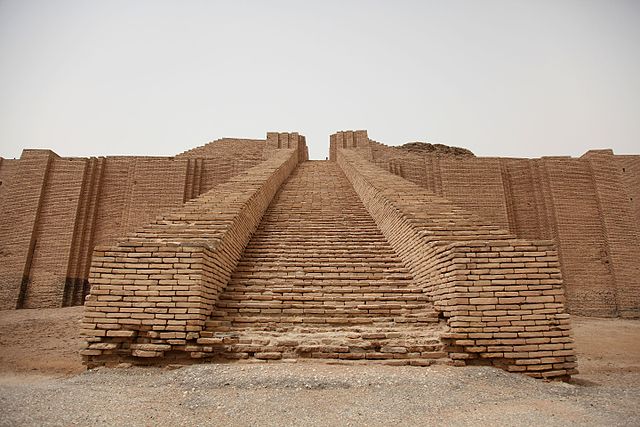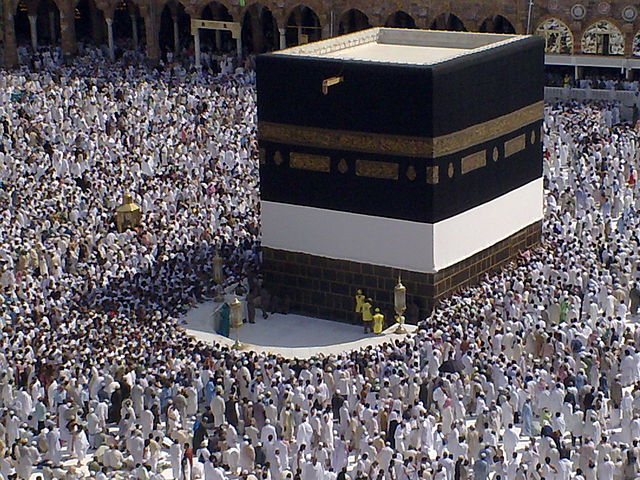Abraham was a prophet and messenger of God according to Islam, and an ancestor to the Ishmaelite Arabs and Israelites. Abraham plays a prominent role as an example of faith in Judaism, Christianity, and Islam. In Muslim belief, Abraham fulfilled all the commandments and trials wherein God nurtured him throughout his lifetime. As a result of his unwavering faith in God, Abraham was promised by God to be a leader to all the nations of the world. The Quran extols Abraham as a model, an exemplar, obedient and not an idolater. In this sense, Abraham has been described as representing "primordial man in universal surrender to the Divine Reality before its fragmentation into religions separated from each other by differences in form". Muslims believe that the Kaaba in Mecca was built by Abraham and his son Ishmael as the first house of worship on earth. The Islamic holy day 'Eid ul-Adha is celebrated in commemoration of Abraham's willingness to sacrifice his son on God's command, as well as the end of the Hajj pilgrimage to the Kaaba.

Exterior view of the Cave of the Patriarchs in the Old City of Hebron, the West Bank
Ruins in the Lower Mesopotamian city of Ur, 2016, where Ibrahim is thought to have been born, and are thus named "Abraham's House" (30°57′42.75″N 46°06′21.3″E / 30.9618750°N 46.105917°E / 30.9618750; 46.105917)
The Ziggurat of Ur, where idolatry was practiced in ancient times, in 2010
Ibrahim's Sacrifice; Timurid Anthology, 1410–1411
The Ishmaelites were a collection of various Arab tribes, tribal confederations and small kingdoms described in Abrahamic tradition as being descended from and named after Ishmael, a prophet according to the Quran, the first son of Abraham and the Egyptian Hagar.
The semicircular Hijr Ismail wall, associated with Ibrahim (Abraham), Ishmael and their building of the Kaaba (now part of the Great Mosque of Mecca)





